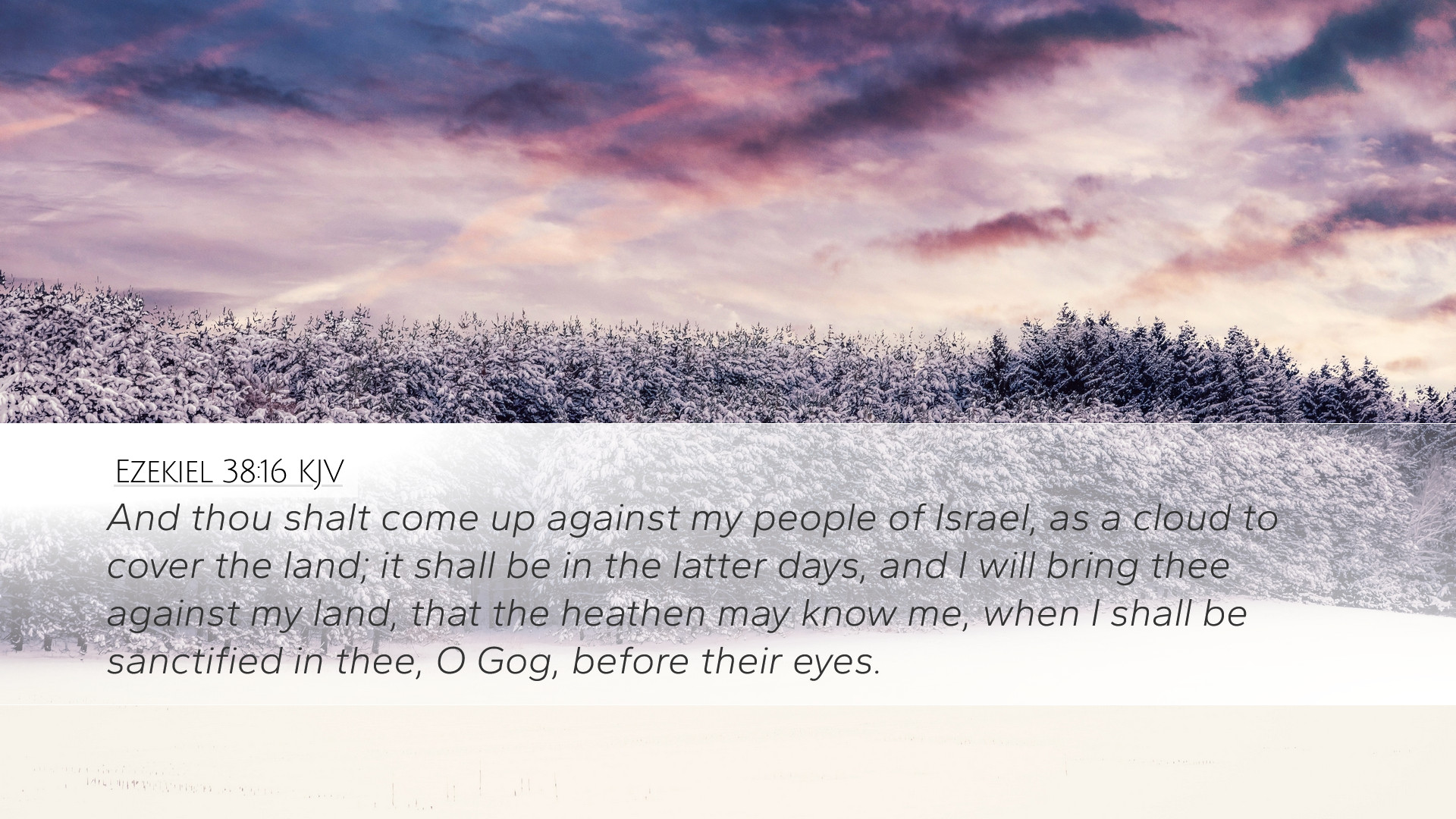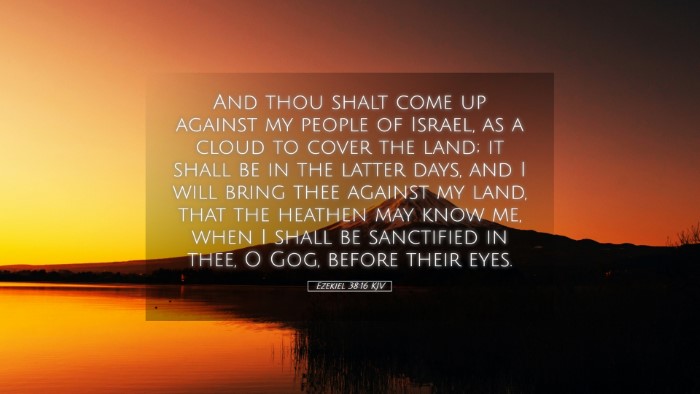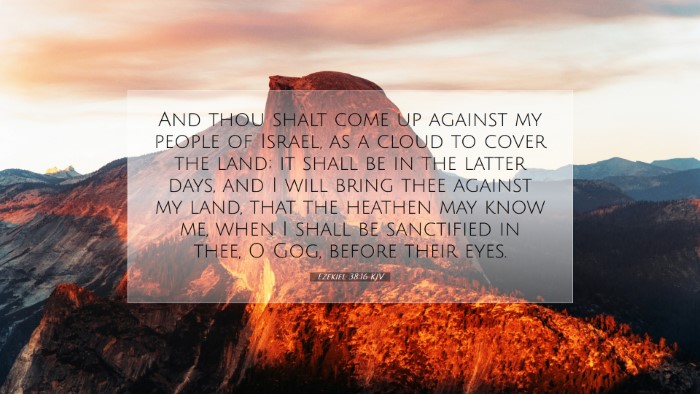Ezekiel 38:16 - Commentary Overview
This verse reads:
"And thou shalt come up against my people of Israel, as a cloud to cover the land; it shall be in the latter days, and I will bring thee against my land, that the nations may know me, when I shall be sanctified in thee, O Gog, before their eyes."
Contextual Background
Ezekiel 38 addresses a prophetic vision concerning the invasion of Israel by Gog of the land of Magog. This passage is a prophetic declaration that spans eschatological themes involving the ultimate victory of God over Israel's enemies. Ezekiel prophesies against Gog, a powerful adversary representing a coalition of nations in the last days, which speaks to the historical and future struggles of God’s chosen people.
Verse Analysis
Mention of Israel
Ezekiel specifically identifies God's people as Israel, highlighting their chosen status. The term “my people” refers to a covenant relationship, affirming how invocations and declarations relate not just to a nation but to a divine promise and identity.
Imagery of the Cloud
The metaphor of a cloud serves dual purposes. It depicts both concealment and overwhelming presence. In biblical literature, clouds often symbolize the presence of God, but here it illustrates the formidable force Gog, which brings chaos and confusion in its wake.
Time Frame - The Latter Days
The phrase “in the latter days” is marked with significance in prophetic terms relating to the period leading to the culmination of God’s redemptive history. Commentators such as Matthew Henry emphasize the certainty of events spoken by God, culminating in the ultimate intertwining of divine justice with human history.
Divine Sovereignty and Intent
There is a notable affirmation of God's sovereignty in the assertion, “I will bring thee against my land.” Here, God actively initiates this confrontation to demonstrate His power and holiness. As Albert Barnes comments, this act serves the profound purpose of revealing God's character worldwide, regardless of human hostility.
The Purpose of God’s Action
The phrase “that the nations may know me” underscores a central theme in Scripture — God’s desire to be recognized and sanctified among all nations. Adam Clarke elucidates this idea by suggesting that God orchestrates historical events to display His majesty, emphasizing that His name will be glorified through the struggles of His people.
Theological Implications
This verse emphasizes the tension between divine providence and human agency. It showcases a historical narrative characterized by conflict, ultimately culminating in a divine revelation.
- God’s Sovereignty: Acknowledging that God is in control even when dark forces seem to prevail.
- The Purpose of Suffering: Understanding trials as part of God’s redemptive plan to reveal His holiness.
- Hope in Eschatology: Encouraging believers that God's ultimate victory will be revealed in the end times.
Application for Today’s Believers
For contemporary pastors and theologians, Ezekiel 38:16 serves as a reminder of God’s faithfulness and the importance of trusting in His overarching plan amid personal and communal suffering. The imagery of the invading forces reminds us that trials can be overwhelming, yet they ultimately serve to reveal God’s presence and power.
Encouragement in Conflict
In circumstances marked by strife, believers are called to reflect on God's sovereignty and assurance that He works through adversity.
Awareness of God’s Holiness
This passage calls for introspection about the holiness of God and our practical responses to His call — for His name to be sanctified among us and through us in the world.
Concluding Thoughts
Ezekiel 38:16 encapsulates a profound truth — despite the chaos of history and the seeming evil of nations, God's purposes will ultimately prevail. As we study this verse, we reaffirm the call to growth in faith through understanding God’s character and promises, looking forward in hope to the culmination of redemption for all who call upon His name.


